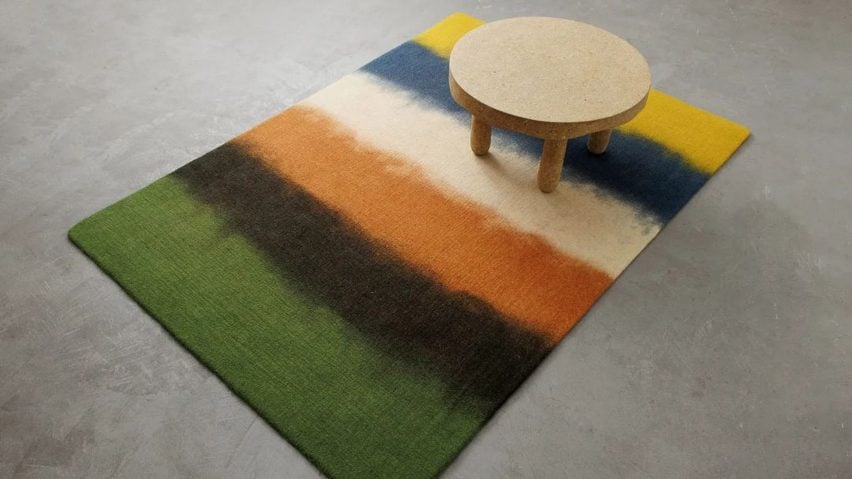
Softblock rug revives "world's oldest rug-making technique"
Rug manufacturer Peace Industry used an endangered Iranian felting technique to develop this colourful reversible rug with a different pattern on each side.
The Softblock rug is crafted from raw lamb's wool using a method known as namad, which was brought to the edge of extinction due to the popularity of knotted rugs.
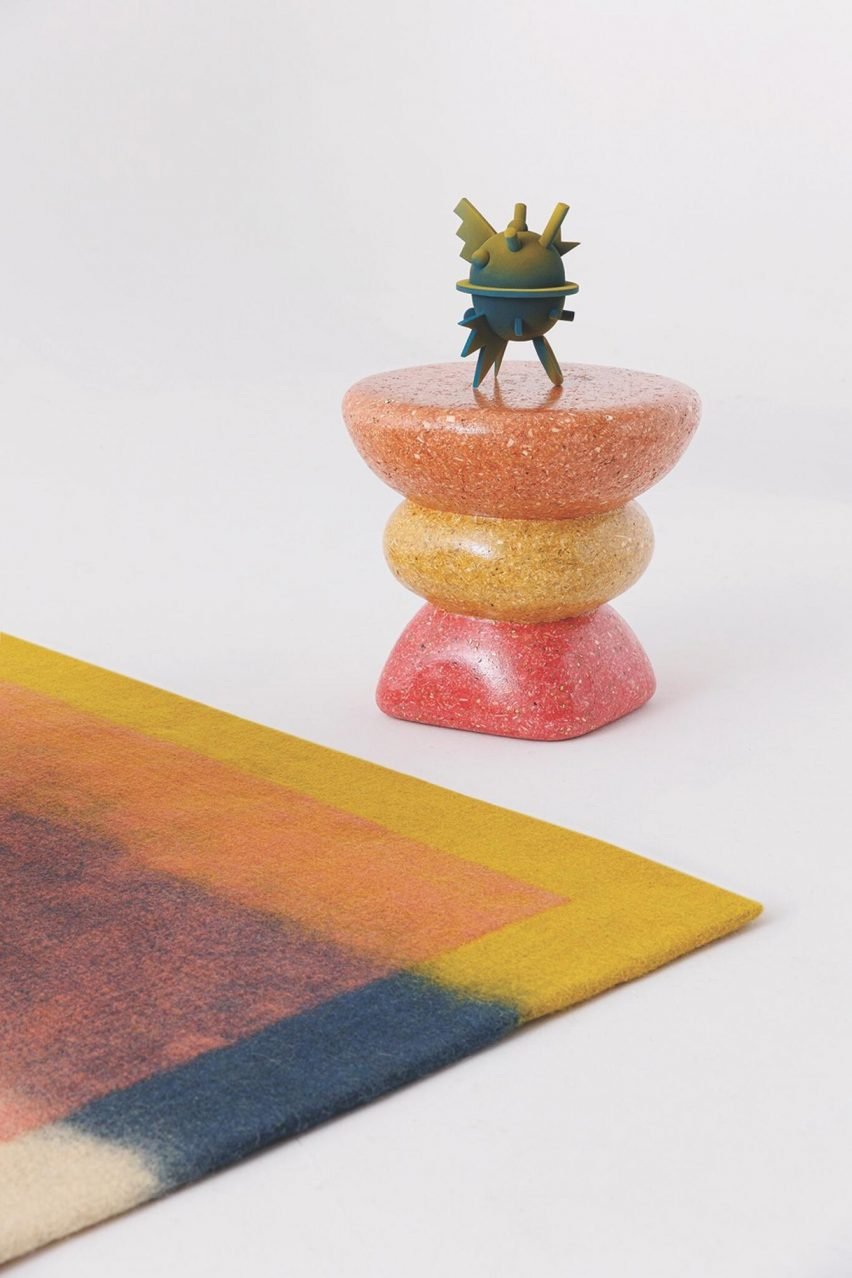
Melina and Dodd Raissnia founded Peace Industry in 2002 after coming across an example of a simple felted rug and began designing and producing rugs based on a process used in Central Asia for millennia.
To help preserve the craft, they set up a workshop near the Iranian city of Esfahan where the rugs are manufactured by local artisans, half of whom are hearing-impaired.
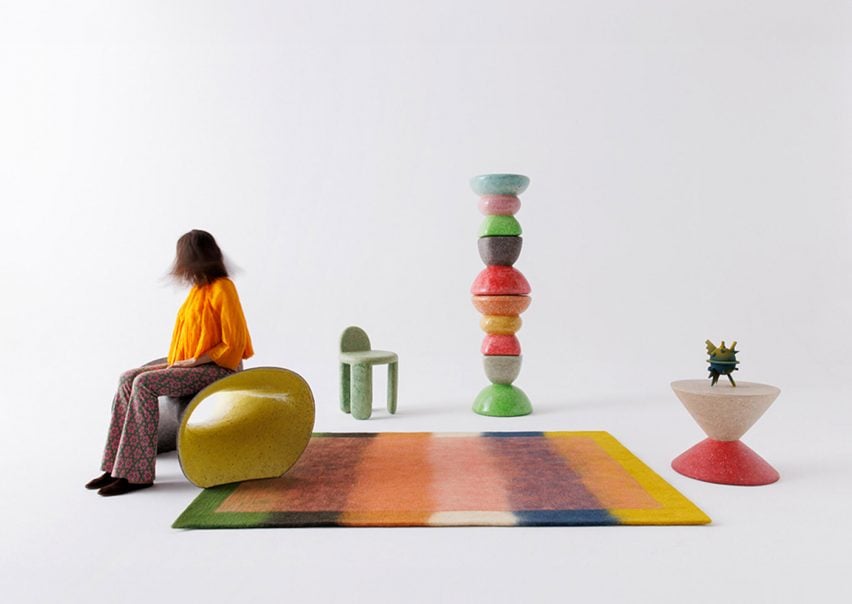
"Namad is the world's oldest rug-making technique, which has been on a decline in quality and popularity in the last hundred years," said Dodd Raissnia, who designed the Softblock rug.
"We have managed to reverse this trend by reintroducing a high-quality sustainable product that has both an ancient and modern appeal."
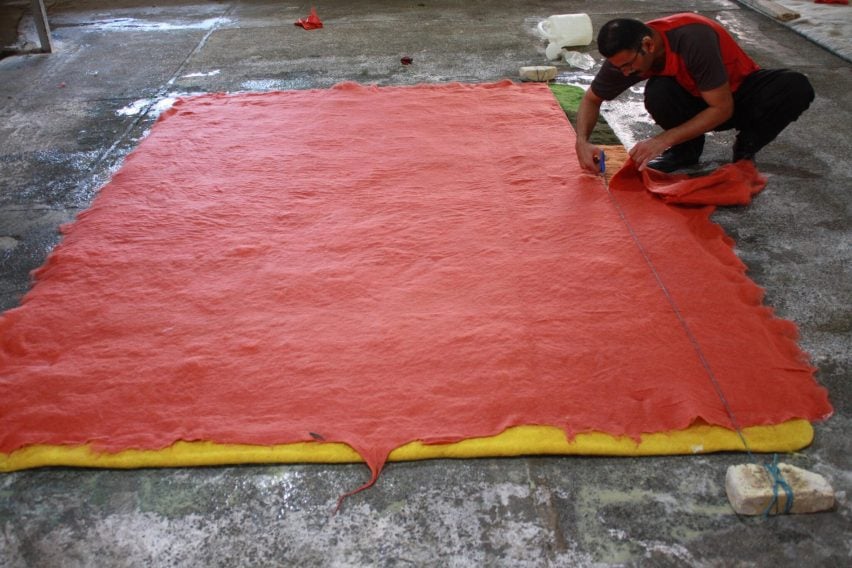
Namad rugs are made by distributing loose wool over a pattern spun with dyed yarn. Boiling water is added and the rug is rolled tightly before being kneaded by hand or foot to compress the fibres, resulting in a dense and strong textile.
The company established a programme that trains young artisans in traditional felt-making techniques and aims to provide them with sustainable livelihoods.
The rugs are made from 100 per cent raw wool that is locally sourced and is not washed or processed in any way. Natural vegetable dyes are used to give the Softblock rug its soft and earthy colours while eliminating the need for any chemical processes.
Like all of Peace Industry's rugs, the design is reversible and features a different pattern on each side. One side displays coloured bands that merge together, while a large red rectangle is overlaid on the opposite side.
The felting technique and double-sided nature of the rug result in a durable surface requiring minimal maintenance or cleaning, according to Raissnia
"The reversible design offers versatility and durability, extending its lifespan and reducing waste while allowing customers to refresh their space by simply flipping the rug over," he explained.
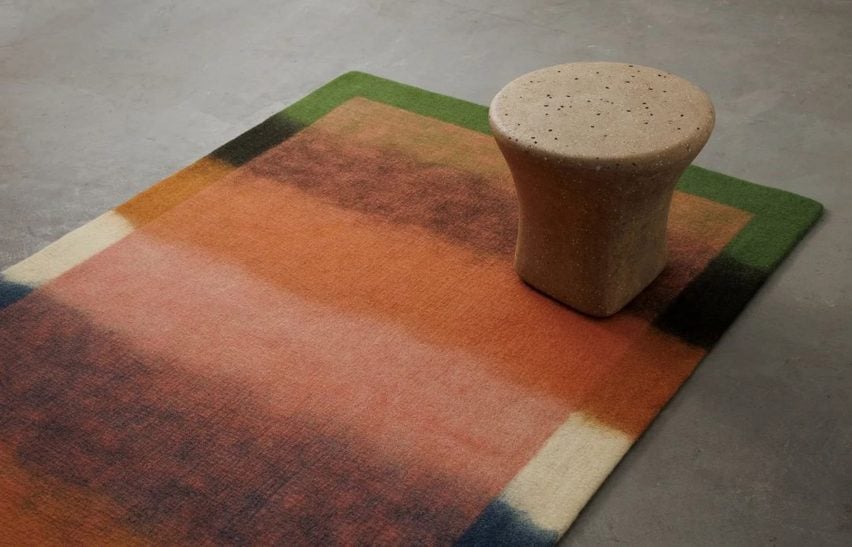
Felt is naturally non-absorbent, stain-resistant and fire-resistant while providing sound-dampening qualities that can improve acoustics within a space.
The felt's closed surface also keeps out dust and allergenic particles better than the pile on woven rugs, according to Peace Industry.
The Softblock rug has been shortlisted in the textile design category of Dezeen Awards 2024, alongside projects including Petit Pli's collection of wool clothing that expands to fit children as they grow.
The photography is by Aassttiinn.